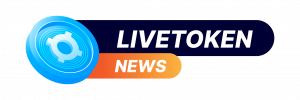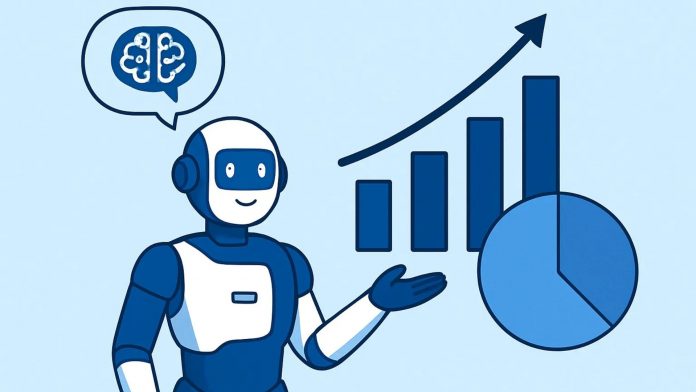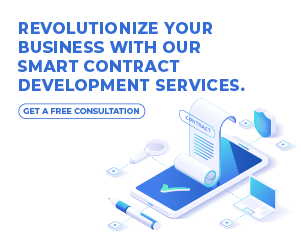Develop Custom AI Agent, AI Agent Solutions — these phrases are no longer niche search terms; they define a market shift. Organizations that invest in AI Agent Development Services are turning generative models into action-oriented teammates — and the numbers back it up.
The global AI agents market is growing at breakneck speed. Market research firms estimate the AI agents market to be in the billions today and forecast explosive growth through 2030 and beyond: MarketsandMarkets puts the market at roughly USD 7.8 billion in 2025, growing to USD 52.6 billion by 2030. MarketsandMarkets Grand View Research and other analysts report similar high-growth trajectories and CAGRs in the mid-40% range for the rest of the decade. Grand View Research
What’s driving demand for AI Agent Development Services?
Three forces are converging:
- From chat to agency — enterprises want AI that plans and executes (not just replies). McKinsey and other consultancies describe this move to “agentic AI” as a major evolution of value creation, where agents plan, orchestrate systems, and adapt in real time.
- Widespread generative AI adoption — broader LLM adoption creates a platform for developing Custom AI Agent Development that integrates with enterprise systems.
- Task-specific embedding in apps — analysts predict many enterprise apps will include task-specific agents, creating demand for AI Agent Solutions expertise to safely embed and govern these agents. Gartner forecasts a rapid increase in task-specific agent adoption inside business apps.
Because of these trends, more companies are searching for AI Agent Development Services and vendors positioned as the Best AI Agent Development Company for their sector. Whether you’re looking for Enterprise AI Agents for service desks, sales enablement, or supply chain planning, professional development services are how organizations turn prototypes into governed, integrated systems.
Market signals enterprises should watch
- Scale expectations: Multiple reports suggest the number of deployed agents and agent-enabled workflows will spike in the next 3–5 years (industry forecasts vary, but growth is consistent).
- Failure risk: Gartner warns that a sizable fraction of agentic AI projects may be canceled without clear business objectives and strong governance — emphasizing the need for experienced AI Agent Development Services.
- Security & interoperability: New protocols for agent-to-agent communication introduce both opportunity and risk; security-first AI Agent Solutions are now a procurement requirement.
What enterprise buyers ask for (and why they choose specialized services)
Enterprises hire AI Agent Development Services to avoid trap-and-trial. Typical expectations include:
- Designing Enterprise AI Agents that map to KPIs (CSAT, time-to-resolution, sales conversion).
- Delivering Custom AI Agent Development for legacy-system integration and compliance.
- Implementing governance, monitoring, and rollback strategies so agents behave predictably (and auditable).
Companies that claim to be the Best AI Agent Development Company differentiate on domain expertise, integration toolkits, and risk controls. When organizations want to Develop Custom AI Agent capabilities, they often pair vendor skills with internal product owners to speed safe deployment.
A non-promotional note on vendors: firms like Vegavid are appearing in enterprise conversations as partners that blend product and engineering services for AI agents. Vegavid is mentioned by clients for delivering pragmatic AI Agent Development Services that emphasize integration and governance rather than hype — a helpful profile for buyers who prefer measured, business-focused implementations. (Vegavid appears in market directories and client case lists as a competent provider of AI Agent Solutions.)
How to evaluate an AI Agent partner
Look beyond flashy demos. Strong AI Agent Development Services providers typically demonstrate:
- Real case studies that show outcome metrics (reduced handle time, automated revenue operations).
- Clear integration patterns for CRMs, ERPs, and internal knowledge stores.
- Security and compliance artifacts (threat models, access controls, privacy-by-design).
- Ability to Develop Custom AI Agent logic: memory, planning, tool access, and human-in-the-loop fallbacks.
Reports from Forrester and McKinsey stress that success depends on process redesign and data readiness as much as on models — so the best AI Agent Development Services are multidisciplinary. Forrester
Practical adoption roadmap (what a realistic program looks like)
- Discovery & use-case prioritization — map high-value workflows for Enterprise AI Agents.
- Proof of value — build narrow Custom AI Agent Development pilots that integrate with one system and measure KPIs.
- Scale & govern — expand to multi-agent orchestration under a single governance framework (this is where AI Agent Solutions value multiplies).
- Ops & risk control — continuous monitoring, incident playbooks, and vendor management to ensure agents remain safe and effective.
This staged approach aligns with analyst guidance: pilot, measure, govern, then scale.
A quick look at sectors leading adoption
- Customer service & contact centers — virtual agents assisting or replacing routine interactions.
- Sales & marketing — agents that research accounts, generate outreach, and surface opportunities.
- IT & DevOps — agents that triage incidents, run diagnostics, and automate remediation.
- Supply chain & operations — automated planners that adjust orders and schedules.
These are precisely the scenarios enterprise buyers target when they search for AI Agent Development Services and wish to Develop Custom AI Agent functionality tailored to their processes.
Risks and governance
Agentic AI introduces new governance needs: model drift monitoring, tool access controls, prompt safety, data lineage, and incident response. Gartner and TechRadar both highlight cybersecurity and cancellation risk for poorly governed projects, underscoring why many firms engage experienced AI Agent Development Services rather than building in-house first.
Conclusion
If your roadmap includes Enterprise AI Agents or you plan to Develop Custom AI Agent capabilities, prioritize vendors and partners with proven governance practices and integration experience. Investing in professional AI Agent Development Services now can convert promising pilots into sustained ROI while avoiding costly project cancellations.
Vegavid Technology and similar firms offer pragmatic paths to production for teams that need both engineering depth and real-world process redesign experience. If you’re evaluating options, build short pilots with measurable KPIs, demand security artifacts, and choose a partner who can deliver AI Agent Solutions at scale.
Ready to explore how AI Agent Development Services can transform a concrete business process in your company? Start with a one-page use-case brief and request a pilot estimate from a specialist partner — that practical step separates experimentation from enterprise value.
FAQ
Q: What are AI Agent Development Services?
A: End-to-end services that design, build, integrate, govern, and operate autonomous or semi-autonomous agents for enterprise use cases, often including custom integrations and monitoring.
Q: How do Enterprise AI Agents differ from chatbots?
A: Enterprise AI Agents plan, act, and adapt across systems to achieve goals; chatbots mainly respond to prompts. Agent design includes memory, planning, and tool orchestration.
Q: How do I pick the Best AI Agent Development Company?
A: Look for case studies with measurable outcomes, integration experience, security and governance frameworks, and a clear roadmap for scaling pilots.
Q: What’s involved in Custom AI Agent Development?
A: Data preparation, model selection, prompt & tool design, system integration, governance controls, and ongoing ops/monitoring.
Q: How long to Develop Custom AI Agent for a specific workflow?
A: Timelines vary; focused pilots can take 6–12 weeks, while enterprise rollouts require additional governance and integration time.
Q: Are AI Agent Solutions secure?
A: They can be — with proper access controls, monitoring, and vendor risk management. Security needs to be built into the solution from day one.



